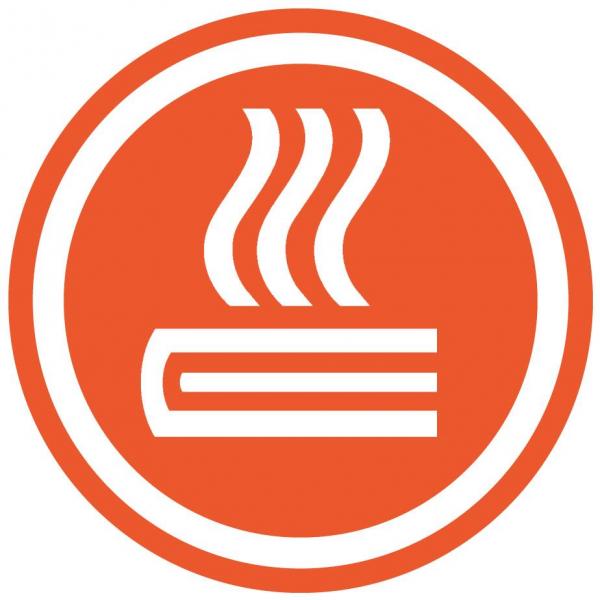- Categories:
Small Press Profile: Coffee House Press, Indie Publisher and Nonprofit Arts Incubator
 Coffee House Press (CHP), based in Minneapolis, Minnesota, was established by Allan Kornblum in Iowa in 1972. Originally named Toothpaste Press, the publisher produced chapbooks, broadsides, and zines before it grew into the literary press it is today. “[Allan] made Coffee House into the kind of publisher he wished existed,” said Caroline Casey, the press’ managing director.
Coffee House Press (CHP), based in Minneapolis, Minnesota, was established by Allan Kornblum in Iowa in 1972. Originally named Toothpaste Press, the publisher produced chapbooks, broadsides, and zines before it grew into the literary press it is today. “[Allan] made Coffee House into the kind of publisher he wished existed,” said Caroline Casey, the press’ managing director.
Kornblum, who died in 2014, designed the press — named in the tradition of coffee houses as gathering places for the free exchange of ideas — around the foundations of supporting innovation, celebrating the book and book arts, and representing the true diversity of American voices.
To that end, Coffee House Press operates both as an independent publishing house that produces diverse literature and as a nonprofit that uses its resources “to incubate ideas, collaborate with artists and organizations we admire, and create off-the-page literary experiences and audience engagement opportunities,” explained Casey.
Coffee House Press’ Books in Action initiative encompasses several programs that connect literature to readers and reading communities. One such program is CHP: In the Stacks, a library residency program that places writers, artists, and sometimes readers in public libraries to create new work and inspire community engagement. Coffee House also collaborated with artist Cole Sarar on Ring Ring Poetry, an installation featuring poems written for specific locations throughout Minnesota. At any particular location, a visitor can call the Ring Ring Poetry phone number and experience the poem written for that location.
“While publishing is the main thrust of our operations, the arts organization side is an important piece, too — it’s the way that we create spaces for artists to play, for audiences to have literary experiences that aren’t reading a book, and for us to use our resources to catalyze other people’s projects,” said Casey.
Publisher Chris Fischbach oversees the press’ publishing operations; however, as a nonprofit, Coffee House Press is responsible to a 21-member board for such key elements as budget and upper-level strategy. “They’re invaluable — for advice, support, expertise, and governance. It’s a really productive, respectful relationship,” said Casey.
Coffee House Press also engages in several access and equality initiatives. For CHP, accessibility means making all of its titles available in formats easily read by those with visual impairments and finding the best way to deliver those books to readers. “We were founded with the idea that publishing should represent the diversity of American voices, and you can’t really do that if you don’t take into account whether or not the people getting to engage with the books includes the disability community,” said Casey. “Access is an ever-expanding category for us.”
The publisher also regularly donates to the Little Free Library project. To date, CHP has donated more than 12,000 books, which have traveled to Little Free Libraries in more than 40 countries.
Remaining an independent publisher has allowed Coffee House Press to grow over the years while remaining true to its goals of connecting readers with books and fostering creative conversations, noted Casey.
“We get to maneuver as we see fit. We publish work because it fits with our mission, and the stakeholders — donors, authors, readers — we are responsible to are very different from stockholders,” she said. “Our funders support us because of the books we publish and the programming we offer, so their return on investment is very different. And it allows us to pursue a mission that’s artist and audience forward, instead of being focused on a P&L.”
Over the years, Coffee House Press has also developed a particularly strong connection with the independent bookstores that carry its line of titles. “I don’t think there’s anything as valuable for a book’s success as having a team of booksellers across the country get on board,” said Casey.
Coffee House Press currently publishes 18 books per year, split evenly among the categories of fiction, poetry, and essays, with an occasional wild card.
Most of the titles are published under the Coffee House Press brand, but its new Emily Books imprint focuses on feminist, transgressive work. “It’s exciting. We have the first book, Problems by Jade Sharma, coming up in the spring season. It’s weird and funny and dark,” said Casey.
Recent titles from Coffee House Press include The Story of My Teeth by Valeria Luiselli; A Girl Is a Half-Formed Thing by Eimear McBride; Leaving the Atocha Station by Ben Lerner; Submergence by J.M. Ledgard; and I Hotel by Karen Tei Yamashita, with art by Leland Wong and Sina Grace. The press also publishes the poetry of Anne Waldman, Ron Padgett, and Saeed Jones and is engaging in a new focus on translations from Latin America.
Coffee House Press titles are distributed by Consortium Sales & Distribution.

